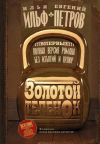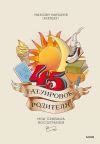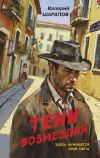Текст книги "Великий Гэтсби / The Great Gatsby"

Автор книги: Френсис Фицджеральд
Жанр: Классическая проза, Классика
Возрастные ограничения: +12
сообщить о неприемлемом содержимом
Текущая страница: 2 (всего у книги 9 страниц)
Chapter 3

There was music from my neighbour's house through the summer nights. In his gardens men and girls came and went like moths. In the afternoon I watched his guests diving from the tower of his raft or taking the sun on the hot sand of his beach. On week-ends his Rolls-Royce became an omnibus, bearing parties to and from the city. And on Mondays eight servants toiled all day with mops and brushes and hammers, repairing the ravages of the night before.
Every Friday five boxes of oranges and lemons arrived from New York. There was a machine in the kitchen which could extract the juice of two hundred oranges in half an hour.
By seven o'clock the orchestra has arrived – oboes and trombones and saxophones and viols and cornets and piccolos and low and high drums. Floating rounds of cocktails permeate the garden outside, until the air is alive with chatter and laughter and meetings between women who never knew each other's names.
Now the orchestra is playing cocktail music. Laughter is easier, the groups change more swiftly.
When I went to Gatsby's house I was one of the few guests who had actually been invited. People were not invited – they went there. They got into automobiles which bore them out to Long Island and somehow they ended up at Gatsby's door. Sometimes they came and went without having met Gatsby at all.
I had been actually invited. A chauffeur in a uniform gave me a formal note from his employer – the honor would be entirely Jay Gatsby's, it said, if I would attend his “little party” that night.
Dressed up in white flannels I went over to his lawn a little after seven. I was immediately struck by the number of young Englishmen dotted about; all well dressed, all looking a little hungry. I was sure that they were selling something: bonds or insurance or automobiles.
As soon as I arrived I made an attempt to find my host but the two or three people of whom I asked his whereabouts stared at me.
I noticed Jordan Baker with two girls in yellow dresses.
She came out of the house and stood at the head of the marble steps, leaning a little backward and looking with contemptuous interest down into the garden.
“Hello!” I roared, advancing toward her. My voice seemed unnaturally loud across the garden.
“I thought I would meet you here,” she responded absently. “I remembered you lived next door to…”
“Hello!” the girls in yellow dresses cried together. “Sorry you didn't win.”
They were talking about the golf competition the week before.
“You don't know who we are,” said one of the girls in yellow, “but we met you here about a month ago.”
“Do you come to these parties often?” inquired Jordan of the girl beside her.
“The last one was the one I met you at,” answered the girl. She turned to her companion: “You too, Lucille?”
Of course, Lucille, too.
“I like to come here,” Lucille said. “I never care what I do, so I always have a good time. When I was here last I tore my gown on a chair, and he asked me my name and address – and in some days I got a package with a new evening gown in it.”
“Did you accept it?” asked Jordan.
“Sure I did. I was going to wear it tonight, but it was too big for me. Two hundred and sixty-five dollars.”
“He doesn't want any trouble,” said the other girl eagerly, “with anybody.”
“Who doesn't?” I inquired.
“Gatsby. Somebody told me…”
The two girls and Jordan leaned together confidentially.
“Somebody told me they thought he killed a man once.”
“I don't think it's so much THAT,” argued Lucille sceptically; “it's more that he was a German spy during the war.”
One of the men nodded in confirmation.
“I heard that from a man who knew all about him, he grew up with him in Germany,” he assured us.
“Oh, no,” said the first girl, “it couldn't be that, because he was in the American army during the war. But just look at him sometimes when he thinks nobody's looking at him. I'll bet he killed a man.”
We all turned and looked around for Gatsby.
The first supper – there would be another one after midnight – was now being served, and Jordan invited me to join her around a table on the other side of the garden.
“Let's get out,” whispered Jordan, after half an hour.
We got up, and she explained that we were going to find the host.
The bar, where we went first, was crowded but Gatsby was not there. She couldn't find him from the top of the steps, and he wasn't on the veranda. We opened a heavy door, and walked into a library.
A stout, middle-aged man with enormous spectacles was sitting on the edge of a great table, staring at the shelves of books. As we entered he turned around and examined Jordan from head to foot.
“What do you think?” he demanded impetuously.
“About what?”
He waved his hand toward the book-shelves.
“About that. They're real.”
“The books?”
He nodded.
“Absolutely real – have pages and everything. I thought they were unreal. But they're absolutely real. Pages and – Here! Let me show you.”
He rushed to the bookcases and returned with a big volume.
“See!” he cried triumphantly. “It's a masterpiece. But he didn't cut the pages. What do you want? What do you expect?”
He took the book from me and replaced it hastily on its shelf.
“Who brought you?” he demanded. “Or did you just come? I was brought. Most people were brought.”
Jordan looked at him cheerfully without answering.
“I was brought by a woman named Roosevelt,” he continued. “Mrs. Roosevelt. Do you know her? I met her somewhere last night. I've been drunk for about a week now, and I decide to sit in a library.”
“And?”
“I can't tell yet. I've only been here an hour. Did I tell you about the books? They're real. They're…”
“You told us.”
We shook hands with him gravely and went back outdoors.
I tried to find the host. I was still with Jordan Baker. We were sitting at a table with a man of about my age and a girl who was laughing all the time. I was enjoying myself now. I had taken two glasses of champagne.
The man looked at me and smiled.
“Your face is familiar,” he said, politely. “Weren't you in the Third Division during the war?”
“Why, yes. I was in the Ninth Battalion.”
“Oh! And I was in the Seventh Battalion. I knew I'd seen you somewhere before.”
He told me that he had just bought a hydroplane and was going to try it out in the morning.
“Want to go with me, old sport?”
“What time?”
“Any time that suits you best.”
I wanted to ask his name when Jordan looked around and smiled.
“Are you having a good time?” she inquired.
“Yes, I am.” I turned again to my new acquaintance. “This is an unusual party for me. I haven't even seen the host. I live over there, and this man Gatsby sent over his chauffeur with an invitation.”
For a moment he looked at me as if he failed to understand.
“I'm Gatsby,” he said suddenly.
“What!” I exclaimed. “Oh, I beg your pardon.”
“I thought you knew, old sport. I'm afraid I'm not a very good host.”
He smiled. It was one of those rare smiles, that you may come across four or five times in life. Almost at the moment when Mr. Gatsby identified himself a servant hurried toward him with the information that Chicago was calling him on the wire. He excused himself with a small bow.
“If you want anything just ask for it, old sport,” he urged me. “Excuse me. I will rejoin you later.”
When he was gone I turned immediately to Jordan.
“Who is he?” I demanded. “Do you know?”
“He's just a man named Gatsby.”
“Where is he from, I mean? And what does he do?”
“Well, he told me once he was an Oxford man. However, I don't believe it.”
“Why not?”
“I don't know,” she insisted, “I just don't think he went there”.
Something in her tone reminded me of the other girl's “I think he killed a man.”
“Anyhow he gives large parties,” said Jordan, changing the subject. “And I like large parties. They're so intimate. At small parties there isn't any privacy.”
There was the boom of a bass drum, and the voice of the orchestra leader was heard.
“Ladies and gentlemen,” he cried. “At the request of Mr. Gatsby we are going to play for you Mr. Vladimir Tostoff's latest work which attracted so much attention at Carnegie Hall[3]3
Carnegie Hall – Карнеги-холл (концертный зал в Нью-Йорке, один из самых престижных в мире для исполнения классической музыки)
[Закрыть] last May. If you read the papers you know there was a big sensation – 'Jazz History of the World.'”
Gatsby was standing alone on the marble steps and looking from one group to another. I could see nothing sinister about him. Maybe he was not drinking at all.
“I beg your pardon.”
Gatsby's servant was standing beside us.
“Miss Baker?” he inquired. “I beg your pardon but Mr. Gatsby would like to speak to you alone.”
“With me?” she exclaimed in surprise.
“Yes, madame.”
She got up slowly, and followed the servant toward the house. I noticed that she wore her evening dress, all her dresses, like sports clothes.
I was alone and it was almost two o'clock. The large room was full of people. One of the girls in yellow was playing the piano and beside her stood a tall, red haired young lady. That lady was singing. She had drunk a quantity of champagne and she was not only singing, she was weeping too. Whenever there was a pause in the song she filled it with broken sobs. The tears coursed down her cheeks. Soon she sank into a chair and went off into a deep sleep.
“She had a fight with a man who says he's her husband,” explained a girl who was standing nearby.
I looked around. The hall was at present occupied by two men and their wives. The wives were talking to each other, “Whenever he sees I'm having a good time he wants to go home. We're always the first ones to leave.”
“So are we.”
“Well, we're almost the last tonight,” said one of the men. “The orchestra left half an hour ago.”
The door of the library opened and Jordan Baker and Gatsby came out together.
“I've just heard the most amazing story,” Jordan whispered to me. “How long were we in there?”
“Why – about an hour.”
“It was simply amazing,” she repeated. “But I swore I wouldn't tell it anybody.”
She yawned gracefully in my face. “Please come and see me… Phone book… Under the name of Mrs. Sigourney Howard… My aunt…”
I joined the last of Gatsby's guests who gathered around him. I wanted to apologize: I had not known him in the garden.
“Don't mention it, old sport,” he said. “And don't forget we're going up in the hydroplane tomorrow morning at nine o'clock.”
The servant behind his shoulder said:
“Philadelphia wants you on the phone, sir.”
“All right, in a minute. Tell them I'll be right there… good night.”
“Good night.”
“Good night.” He smiled. “Good night, old sport… Good night.”
As I walked down the steps I saw that the party was not over. In the ditch beside the road rested a new automobile which had left Gatsby's drive two minutes before. A dozen curious chauffeurs left their automobiles blocking the road and were watching the scene.
A man in a long coat had dismounted from the wreck and now stood in the middle of the road, looking from the automobile to the observers and from the observers to the automobile.
“See!” he explained. “It went in the ditch.”
I recognized the man – I met him in the Gatsby's library.
“How did it happen?”
He shrugged his shoulders.
“I know nothing whatever about mechanics,” he said decisively.
“But how did it happen? Did you run into the wall?”
“Don't ask me,” said he. “I know very little about driving – next to nothing. It happened, and that's all I know.”
“Well, if you're a poor driver why did you drive at night?”
“But I wasn't driving,” he explained, “I wasn't even trying.”
“Do you want to commit suicide?”
“You don't understand,” explained he. “I wasn't driving. There's another man in the automobile.”
The door of the automobile slowly opened. The crowd – it was now a crowd – stepped back and when the door had opened wide there was a pause. Then, very gradually, part by part, a man appeared.
“What's the matter?” he inquired calmly.
“Look!”
Half a dozen fingers pointed at the wheel.
“It came off,” someone explained.
He nodded.
“At first I didn't notice we had stopped.”
A pause. Then he remarked in a determined voice:
“Could you tell me where is a gas station?”
At least a dozen men explained to him that wheel and automobile were no longer joined.
“We will drive slowly,” he said.
“But the WHEEL'S off!”
He hesitated.
“We will try,” he said.
I turned away and went toward home. I glanced back once. A moon was shining over Gatsby's house.
I began to like New York. I liked to walk up Fifth Avenue and watch romantic women from the crowd and imagine that in a few minutes I was going to enter into their lives. For a while I lost sight of Jordan Baker, and then in midsummer I found her again. I liked to walk with her because she was a golf champion and every one knew her name. Then it was something more. I wasn't actually in love, but I felt a sort of curiosity.
Jordan Baker instinctively avoided clever men. She was incurably dishonest. But dishonesty in a woman is a thing you never blame deeply. Every one suspects himself of at least one of the cardinal virtues, and this is mine: I am one of the few honest people that I have ever known.
Chapter 4

On Sunday morning while church bells rang in the villages along shore everybody returned to Gatsby's house.
“He's a bootlegger[4]4
bootlegger – бутлегер (подпольный торговец спиртным во время сухого закона в США)
[Закрыть],” said the young ladies, moving somewhere between his cocktails and his flowers. “One time he killed a man who had found out that he was second cousin to the devil. Give me a rose, honey, and pour me a last drop into that crystal glass.”
Once I wrote down the names of those who came to Gatsby's house that summer. I can still read the names and they will give you a good impression of those who accepted Gatsby's hospitality.
From East Egg came the Chester Beckers and the Leeches, and a man named Bunsen, whom I knew at Yale, and Doctor Webster Civet, who was drowned last summer up in Maine. And the Hornbeams and the Willie Voltaires, and a whole clan named Blackbuck, who always gathered in a corner. And the Ismays and the Chrysties (or rather Hubert Auerbach and Mr. Chrystie's wife), and Edgar Beaver, whose hair turned white one winter afternoon for no good reason at all.
Clarence Endive was from East Egg, as I remember. He came only once and had a fight with a man named Etty in the garden. From farther side of the Island came the Cheadles and the O. R. P. Schraeders, and the Stonewall Jackson Abrams of Georgia, and the Fishguards and the Ripley Snells. Snell was there three days before he went to the jail, he was lying drunk on the gravel drive, and Mrs. Ulysses Swett's automobile ran over his right hand. The Dancies came, too, and S. B. Whitebait, who was well over sixty, and Maurice A. Flink, and the Hammerheads, and Beluga the tobacco importer, and Beluga's daughters.
From West Egg came the Poles and the Mulreadys and Cecil Roebuck and Cecil Schoen and Gulick the state senator and Newton Orchid, who controlled Films Par Excellence, and Eckhaust and Clyde Cohen and Don S. Schwartze (the son) and Arthur McCarty, all connected with the movies. And the Catlips and the Bembergs and G. Earl Muldoon, brother to that Muldoon who afterward strangled his wife. Da Fontano the promoter came there, and Ed Legros and James B. Ferret and the De Jongs and Ernest Lilly-they came to gamble, and when Ferret wandered into the garden it meant he lost.
A man named Klipspringer was there so often and so long that he became known as “the boarder” – I doubt if he had any other home. Of theatrical people there were Gus Waize and Horace O'Donavan and Lester Meyer and George Duckweed and Francis Bull. Also from New York were the Chromes and the Backhyssons and the Dennickers and Russel Betty and the Corrigans and the Kellehers and the Dewars and the Scullys and S. W. Belcher and the Smirkes and the young Quinns, divorced now, and Henry L. Palmetto who killed himself by jumping in front of a subway train in Times Square.
Benny McClenahan arrived always with four girls. Every time they were different, but they were very identical one with another. I have forgotten their names – Jaqueline, I think, or else Consuela or Gloria or Judy or June, and their last names were the melodious names of flowers and months.
In addition to all these I can remember Faustina O'Brien and the Baedeker girls and young Brewer and Mr. Albrucksburger and Miss Haag, his fiancée, and Ardita Fitz-Peters and Mr. P. Jewett, once head of the American Legion, and Miss Claudia Hip, with her chauffeur, and a prince of something, whose name, if I ever knew it, I have forgotten.
All these people came to Gatsby's house in the summer.
* * *
At nine o'clock, one morning late in July Gatsby's gorgeous automobile lurched up the rocky drive to my door. It was the first time he had called on me though I had gone to two of his parties, mounted in his hydroplane, and, at his urgent invitation, made frequent use of his beach.
“Good morning, old sport. You're having lunch with me today and I thought we'd ride up together.”
He was balancing himself on the dashboard of his automobile. He was never quite still. He saw me looking with admiration at his automobile.
“It's pretty, isn't it, old sport?” He jumped off to give me a better view. “Haven't you ever seen it before?”
I'd seen it. Everybody had seen it. It was a rich cream color, bright with nickel. We sat down behind many layers of glass and started to town.
I had talked with him some times in the past month and found, to my disappointment, that he had little to say. So he had become simply the proprietor of a wonderful restaurant next door.
And then came that silly ride. Gatsby was leaving his elegant sentences unfinished.
“Look here, old sport,” he said surprisingly. “What's your opinion of me, anyhow?”
“Hm, I don't know much…” I began.
“Well, I'm going to tell you something about my life,” he interrupted. “I don't want you to get a wrong idea of me from all these stories you hear. I'll tell you the truth. I am the son of some wealthy people in the Middle-West – all dead now. I was brought up in America but educated at Oxford because all my ancestors have been educated there for many years. It is a family tradition.”
“What part of the Middle-West?” I inquired.
“San Francisco.”
“I see.”
“My family all died and I came into a good deal of money.”
His voice was solemn.
“After that I lived like a young prince in all the capitals of Europe – Paris, Venice, Rome – collecting jewels, chiefly rubies, hunting, painting a little, things for myself only, and trying to forget something very sad that had happened to me long ago. Then came the war, old sport. I was promoted to be a major. Here's a thing I always carry. A souvenir of Oxford days. The man on my left is now the Earl of Doncaster.”
It was a photograph of young men. There was Gatsby, looking a little, not much, younger – with a cricket bat in his hand.
Then it was all true.
“I'm going to make a big request of you today,” he said, “so I thought you ought to know something about me. I didn't want you to think I was just some nobody. You see, I usually find myself among strangers because I drift here and there trying to forget the sad thing that happened to me.” He hesitated.
“You'll hear about it this afternoon.”
“At lunch?”
“No, this afternoon. I know that you're taking Miss Baker to tea.”
“Do you mean you're in love with Miss Baker?”
“No, old sport, I'm not. But Miss Baker has kindly consented to speak to you about this matter.”
I hadn't the faintest idea what “this matter” was, but I was more annoyed than interested. I hadn't asked Jordan to tea in order to discuss Mr. Jay Gatsby.
He did not say another word. His correctness grew on him as we neared the city. We passed Port Roosevelt, and sped along the suburbs. I heard the familiar sound of the motorcycle, and a frantic policeman stood before us.
“All right, old sport,” said Gatsby. We slowed down. Taking a white card from his wallet he waved it before the policeman's eyes.
“All right,” agreed the policeman. “I'll know your automobile next time, Mr. Gatsby. Excuse me!”
“What was that?” I inquired. “The picture of Oxford?”
“I did the commissioner a favor once, and he sends me a Christmas card every year.”
The city seen from the Queensboro Bridge is always the city seen for the first time, it shows its wild mystery and beauty.
“Anything can happen now,” I thought; “anything at all.”
* * *
At noon I met Gatsby for lunch. In the anteroom he was talking to a man.
“Mr. Carraway, this is my friend Mr. Wolfsheim.”
Gatsby took an arm of each of us and moved forward into the restaurant.
“This is a nice restaurant here,” said Mr. Wolfsheim looking at the nymphs on the ceiling. “But I like across the street better!”
“It's too hot over there,” agreed Gatsby.
“Hot and small – yes,” said Mr. Wolfsheim, “but full of memories.”
“What place is that?” I asked.
“The old Metropole.”
“The old Metropole,” said Mr. Wolfsheim gloomily. “Filled with faces dead and gone. Filled with friends gone now forever. I can't forget the night they shot Rosy Rosenthal there. It was six of us at the table and Rosy was eating and drinking a lot all evening. When it was almost morning the waiter came up to him with a funny look and said somebody wanted to speak to him outside. 'All right,' says Rosy and begins to get up and I pulled him down in his chair. 'Let the bastards come in here if they want you, Rosy, but don't you.' It was four o'clock in the morning.”
“Did he go?” I asked innocently.
“Sure he went,” Mr. Wolfsheim said indignantly. “He turned around in the door and said, 'Don't let that waiter take away my coffee!' Then he went out and they shot him three times in his full belly and drove away.”
“Four of them were electrocuted,” I said, remembering.
“Five with Becker.” His nostrils turned to me. “I see you're looking for a business connection.”
I was surprised. Gatsby answered for me:
“Oh, no,” he exclaimed, “this isn't the man!”
“No?” Mr. Wolfsheim seemed disappointed.
“This is just a friend. I told you we'd talk about that some other time.”
“I beg your pardon,” said Mr. Wolfsheim, “I had a wrong man.”
Food arrived, and Mr. Wolfsheim began to eat.
“Look here, old sport,” said Gatsby, leaning toward me, “I'm afraid I made you a little angry this morning in the automobile.”
“I don't like mysteries,” I answered. “And I don't understand why you won't come out frankly and tell me what you want. Why do you talk about it with Miss Baker?”
“Oh, no mysteries at all,” he assured me. “Miss Baker's a great sportswoman, you know, and she'd never do anything wrong.”
Suddenly he looked at his watch, jumped up and hurried from the room leaving me with Mr. Wolfsheim at the table.
“He has to telephone,” said Mr. Wolfsheim, following him with his eyes. “Fine fellow, isn't he? Handsome and a perfect gentleman.”
“Yes.”
“He's an Oxford man.”
“Oh!”
“He went to Oxford University in England. Do you know Oxford University?”
“I've heard of it.”
“It's one of the most famous universities in the world.”
“Have you known Gatsby for a long time?” I inquired.
“Several years,” he answered. “I made the pleasure of his acquaintance just after the war. I said to myself: 'It's the man you can introduce to your mother and sister.' “ He paused. “I see you're looking at my cuff buttons.”
I was not looking at them, but I did now.
“Real human teeth,” he informed me.
“Well!” I inspected them. “That's a very interesting idea.”
“Yeah. You know, Gatsby's very careful about women. He will never look at a friend's wife.”
When Gatsby returned to the table and sat down, Mr. Wolfsheim drank his coffee and stood up.
“Thank you for the company,” he said.
“Don't hurry, Meyer,” said Gatsby, without enthusiasm.
“You're very polite but I belong to another generation,” he announced solemnly. “You sit here and discuss your sports and your young ladies and your… As for me, I am fifty years old.”
He shook hands and turned away.
“He becomes very sentimental sometimes,” explained Gatsby. “This is one of his sentimental days. He's well-know in New York.”
“Who is he anyhow – an actor?”
“No.”
“A dentist?”
“Meyer Wolfsheim? No, he's a gambler.”
I noticed Tom Buchanan.
“Come along with me for a minute,” I said. “I'll say hello to someone.”
When he saw us Tom jumped up.
“Where've you been?” he demanded eagerly. “Daisy's furious because you disappeared.”
“This is Mr. Gatsby, Mr. Buchanan.”
They shook hands briefly.
“How've you been, anyhow?” demanded Tom of me. “Why did I meet you here?”
“I was having lunch with Mr. Gatsby.”
I turned toward Mr. Gatsby, but he was no longer there.
* * *
One October day in nineteen-seventeen – (said Jordan Baker that afternoon, sitting up very straight on a straight chair in the tea-garden at the Plaza Hotel) – I was walking along from one place to another. I saw the red, white and blue banners in front of all the houses. The largest of the banners belonged to Daisy Fay's house. She was just eighteen, two years older than me, and the most popular of all the young girls in Louisville. She was wearing white dresses, and the telephone rang in her house all day long.
When I came opposite her house that morning, she was sitting in her automobile with a lieutenant I had never seen before.
“Hello Jordan,” she called unexpectedly. “Please come here.”
She was speaking, and the officer was looking at Daisy while she was speaking. The officer's name was Jay Gatsby and I had not seen him again for over four years – even after I'd met him on Long Island I didn't realize it was the same man.
That was nineteen-seventeen. By the next year I began to play in tournaments, so I didn't see Daisy very often. Wild rumors were circulating about her – how she was packing her bag one winter night to go to New York and say goodbye to a military man who was going overseas, and so on.
By the next autumn she was happy again, happy as ever. She was engaged to a man from New Orleans. In June she married Tom Buchanan of Chicago. He came with a hundred people and hired a whole floor of the hotel, and the day before the wedding he gave her a string of pearls valued at three hundred and fifty thousand dollars.
I was bridesmaid. I came into her room half an hour before the bridal dinner. She was lying on her bed – and as drunk as a monkey. She had a bottle of wine in one hand and a letter in the other.
“Gratulate me,” she muttered. “I was never drunk before but oh, how I do enjoy it.”
“What's the matter, Daisy?”
I was scared, I can tell you; I'd never seen a girl like that before.
“Here, dear.” She took a waste-basket and pulled out the string of pearls. “Take it downstairs and give it back to him. And tell them that Daisy has changed her mind. Say 'Daisy has changed her mind!'”
She began to cry – she cried and cried. I rushed out and found the maid and we locked the door and got her into a cold bath. She had the letter all the time. She took it into the tub with her and then it came to pieces like snow.
But she didn't say another word. We put ice on her forehead and dressed her and half an hour later when we walked out of the room the pearls were around her neck and the incident was over. Next day at five o'clock she married Tom Buchanan.
I saw them in Santa Barbara when they came back and I thought I'd never seen a girl so mad about her husband. If he left the room for a minute she'd look around uneasily and say “Where's Tom gone?” She liked to sit on the sand with his head in her lap looking at him with delight. That was in August. A week after I left Santa Barbara Tom ran into a van on the road one night. The girl who was with him got into the papers too because her arm was broken – she was one of the chambermaids in the Santa Barbara Hotel.
The next April Daisy had her little girl and they went to France for a year. I saw them one spring in Cannes and later in Deauville and then they came back to Chicago. Daisy was popular in Chicago, as you know. Her reputation is absolutely perfect. Perhaps because she doesn't drink. It's a great advantage not to drink among hard-drinking people. You can hold your tongue.
Well, about six weeks ago, she heard the name Gatsby for the first time in years. It was when I asked you – do you remember? – if you knew Gatsby. After you had gone home she came into my room and woke me up, and said “What Gatsby?” and when I described him – I was half asleep – she said in the strangest voice that it must be the man she knew. And I connected this Gatsby with the officer in her white automobile.”
When Jordan Baker had finished her story we had left the Plaza. We were driving through Central Park.
“It was a strange coincidence,” I said.
“But it wasn't a coincidence at all.”
“Why not?”
“Gatsby bought that house so that Daisy would be just across the bay. He wants to know, if you'll invite Daisy to your house some afternoon and then let him come over.”
The modesty of the demand shook me. He had waited five years and bought a mansion so that he could “come over” some afternoon to a stranger.
Something worried me.
“Why didn't he ask you to arrange a meeting?”
“He wants her to see his house,” she explained. “And your house is right next door.”
“Oh!”
“I think he was expecting her to one of his parties, some night,” went on Jordan, “but she never came. Then he began to ask people if they knew her, and I was the first one he found. When I said you were a particular friend of Tom's he wanted to cancel the whole idea. He doesn't know very much about Tom, though he says he's read a Chicago paper for years just to see Daisy's name.”
It was dark now, I put my arm around Jordan's golden shoulder and drew her toward me and asked her to dinner.
“And Daisy must have something in her life,” murmured Jordan to me.
“Does she want to see Gatsby?”
“She doesn't know anything about it. Gatsby doesn't want her to know. You'll just invite her to tea.”
Правообладателям!
Это произведение, предположительно, находится в статусе 'public domain'. Если это не так и размещение материала нарушает чьи-либо права, то сообщите нам об этом.








































